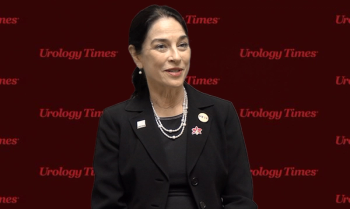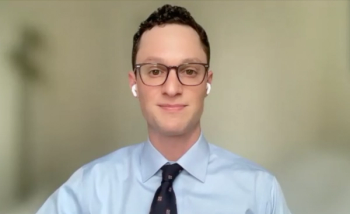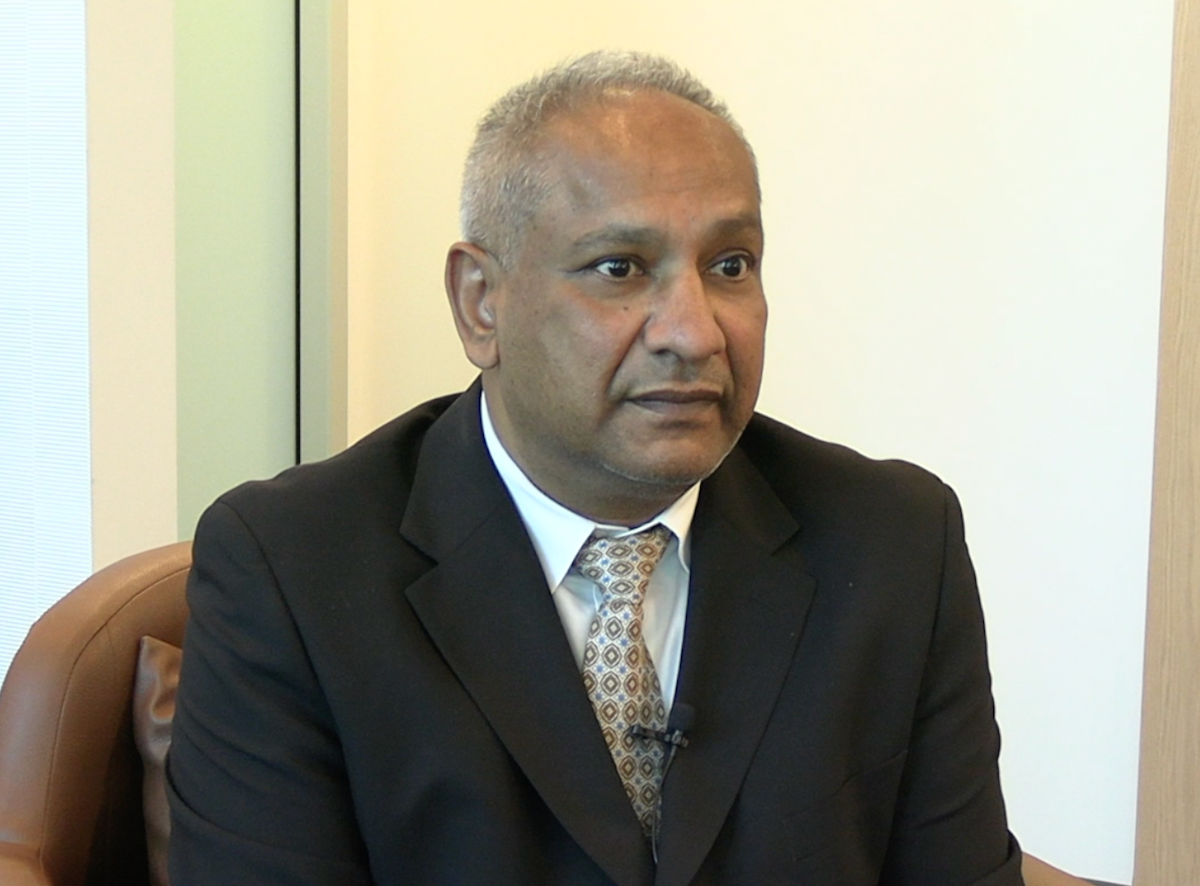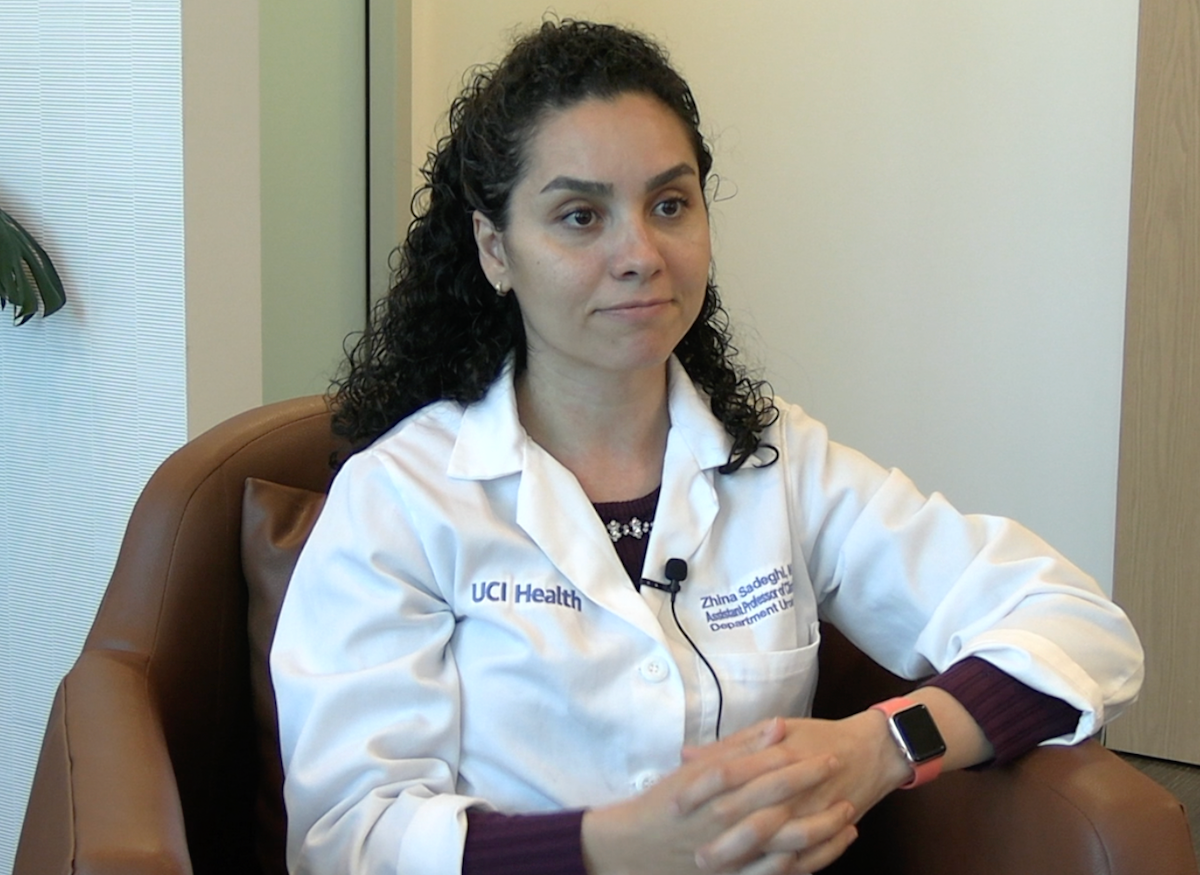
OAB and Incontinence
Latest News
Latest Videos

CME Content
More News

Data from phase 2 of the SANS-UUI trial are expected to support an application to the FDA for approval of the device in patients with urge urinary incontinence.

"In terms of the psychosocial aspect of things, people with toilet insecurity are more likely to experience greater stress and anxiety, report poorer social support, have a poor overall perception of their health, even after controlling for some confounders," says Elisabeth M. Sebesta, MD.

"17% answered positively to 1 of our questions indicating they might be at risk for some sort of home toilet or sanitation insecurity, or at least they experienced some sort of worry or stress about having access consistently to a working toilet in their home," says Elisabeth M. Sebesta, MD.

"How closely should we follow these patients? Is it annually? Is it every other year?" asks Jacqueline Zillioux, MD.

At 12-week follow-up, TAS-303 demonstrated a least squares mean percent change in SUI episode frequency per 24 hours of -57.7% vs -46.9% with placebo.

"We believe the collective findings are unique in urogynecology and offer strong evidence that first-line incontinence treatment is effective, and women can access it using the Leva System,” says Evelyn Hall, MD.

"The success rate is amazing," says Shaya Taghechian, MD, of Bulkamid.

The phase 1b trial enrolled 51 female patients with OAB to assess the safety, tolerability, and preliminary efficacy of V117957.

"We found that over time, when you are controlling for possible competing risk of death because of age, that there was an estimated 44% incidence of cognitive impairment diagnosis at 15 years and 17% for manual dexterity diagnosis at 15 years," says Jacqueline Zillioux, MD.

“We think artificial intelligence has a wide variety of applications that will benefit urologists both in and out of training,” says Mubashir S. Billah, MD.

"We found a 25% incidence of cognitive impairment just based on this telephone test," says Jacqueline Zillioux, MD.

The decision is supported by findings from the phase 3 EMPOWUR trial and the phase 3 EMPOWUR extension study.

The UroActive System is currently under investigation in 2 first-in-human clinical trials in male and female patients with SUI.

"We really need better options with the least side [amount of] effects for these patients," says Zhina Sadeghi, MD.

"My hope is that from the KL2 data that I'll generate, hopefully in the next 6 to 12 months, we can apply for an RO1 to push this one step further so that we can benefit other people with brain tumors, other people with strokes, and other peoples with other neurological disorders with bladder symptoms," says Olivia H. Chang, MD, MPH, FACOG.

"I think digital therapeutics and virtual care are going to expand access," says David Sheyn, MD.

Suzette E. Sutherland, MD, MS, FPMRS, recaps the 2024 AUA session, “Panel Discussion: Which Type of Sling Is Best in the Index SUI Patient?”

"Overall, I think this study will allow clinicians to better advise patients in the slightly complex landscape of OAB therapies," says Leo Dreyfuss, MD.

"We really found from the study, clinicians who had wanted to potentially offer the safer alternative of a single-incision sling, we determined that in this circumstance, it was noninferior," says Catherine A. Matthews, MD, FACS, FACOG.

“Overall, I think this study will allow clinicians to better advise patients in the slightly complex landscape of OAB therapies,” says Leo Dreyfuss, MD.

"I think these findings suggest that for clinicians who treat a lot of older adults with neuromodulation, caution should be exhibited when recommending the single-stage approach," says Leo Dreyfuss, MD.

Yōni.Fit is a soft vaginal insert intended to reduce urine leakage due to SUI without interfering with voluntary urination.

"In the study, about two thirds of the residents did undergo PNE and one third underwent Stage 1, and those who underwent PNE were less likely to progress to device implant than Stage 1," says Leo Dreyfuss, MD.

"So I think these findings overall are reassuring and support the use of neuromodulation in this population," says Leo Dreyfuss, MD.

“Along those lines, we've taken away the traditional step therapy that has dictated overactive bladder care for quite some time,” says Ariana L. Smith, MD, FPMRS.
















